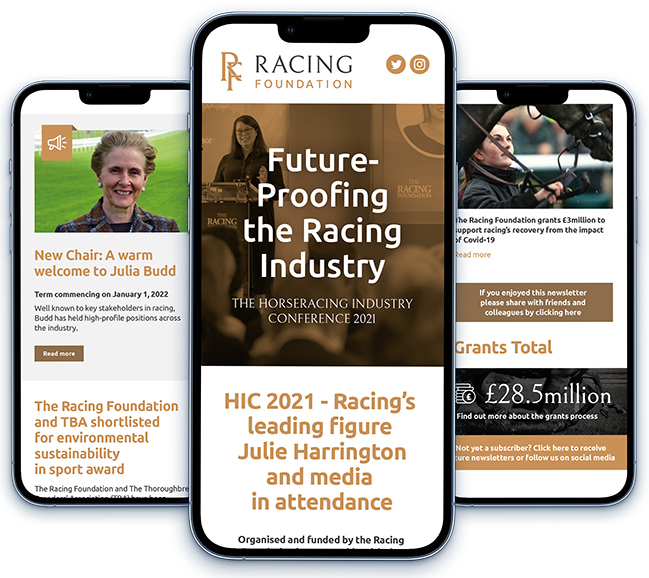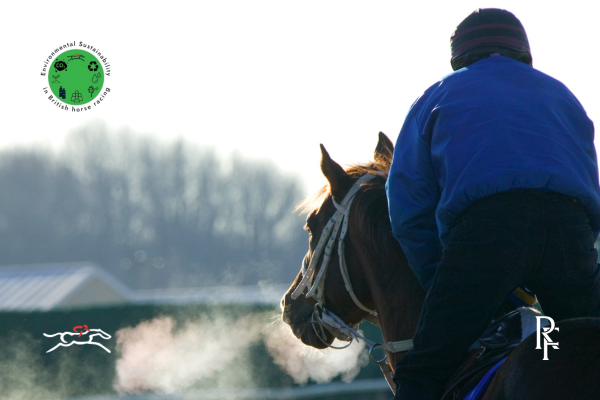


8 Mar 2024
‘An Introduction to Environmental Sustainability in British Horseracing’ is a one-day industry-wide course available to everyone working in racing and provides industry professionals with the information they need to understand environmental sustainability, how it impacts the sport of racing, and what they can do in their day-to-day work to mitigate the risk and minimise the impact of climate change.
The course will run on the 23rd of April 2024 at the British Racing School and again on the 26th of November 2024 at York Racecourse. It has been funded by the Racing Foundation (RF) and delivered by the British Racing School in conjunction with industry environmental sustainability experts, White Griffin.
The Racing Foundation sat down to chat with Director of White Griffin and sustainability manager Ruth Dancer to talk about the course and its importance.
RF: Could you explain how the idea of the course, ‘An Introduction to Environmental Sustainability in British Horseracing’ came about?
RD: After an independent assessment of environmental sustainability across British racing and breeding was commissioned by the British Racing’s Executive Committee and funded by the Racing Foundation, one of the key recommendations was education. We needed to let the industry know about all the risks, challenges, and opportunities of environmental sustainability. The British Racing School were really keen to lead and step out into this topic. So, we have worked together, funded again by the Racing Foundation, to put this course together to share with the whole industry.
RF: What does the course ‘An Introduction to Environmental Sustainability in British Horseracing’ entail?
RD: The course is very interactive. Environmental sustainability can be a bit depressing, so we wanted to ensure this was uplifting. We start the day with an introduction explaining what the topic is and how it impacts the sport. We do a site tour around the British Racing School, looking at biodiversity and land use, and discussing resources and wastewater. We finish with an exercise calculating and comparing emissions from our own human carbon footprint to that of a racehorse and understanding what these numbers mean.
RF: Could you explain what the difficulties are in trying to set goals in the racing industry?
RD: It’s difficult because the racing industry is so diverse. What matters to a racecourse is different to what matters to a jockey, a trainer, and a supplier. We have to think about what environmental sustainability course makes the most sense for absolutely everybody and is relevant and applicable. We’ve spent the last 7 months working through all of the core topics that make a difference. This has now been put together in a one-day course that will be useful to anybody in the horseracing industry.
RF: What do you think this course means for the future of horse racing?
RD: You can’t make change unless you know what you’re trying to achieve in the first place. This course is about helping everyone understand what the motivations are and why we really do need to change the way we do things. We then support people making those changes in the workplace so that horseracing can prepare itself for what climate change is going to bring and make sure that we’re resilient and adaptable to that. So whether that’s water, emissions, or legislation coming through, it’s giving everyone the knowledge and information to go back into their workplace and safeguard the future of horseracing.
Find out more information and to book onto the course visit: https://brs.org.uk/course/environmental-sustainability/